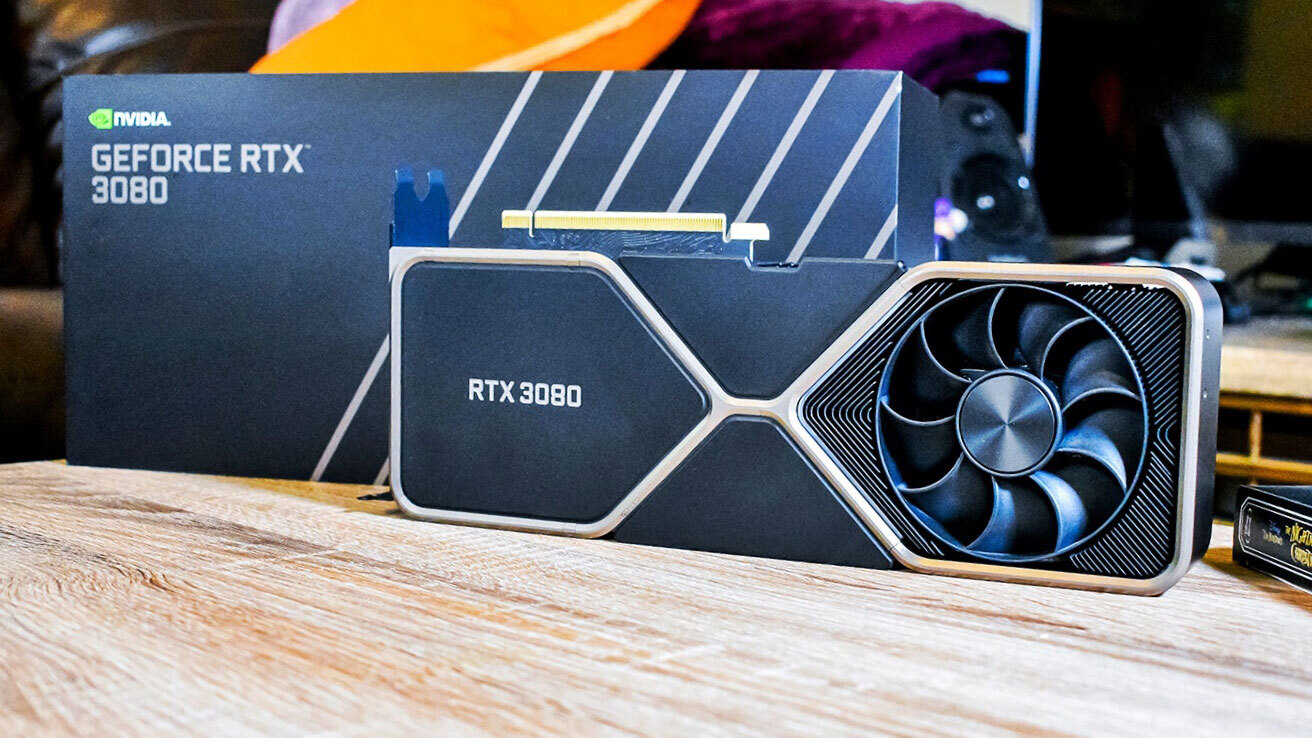Nvidia RTX 3080 crashes are reportedly fixed as new GPU driver lowers boost speeds
But the drop in speed is a very minor one you won’t realistically notice

Sign up for breaking news, reviews, opinion, top tech deals, and more.
You are now subscribed
Your newsletter sign-up was successful
The Nvidia GeForce RTX 3080 has been the subject of controversy lately, with some of those fortunate enough to actually get hold of one of the graphics cards suffering at the hands of instability and crashing, but a freshly released graphics driver appears to provide a solution (or at least a marked improvement).
Nvidia’s GeForce driver version 456.55 emerged yesterday with a few major changes, including support for Nvidia’s Reflex feature in Call of Duty: Modern Warfare (and Warzone), and also a note that: “The new Game Ready Driver also improves stability in certain games on RTX 30 Series GPUs.”
- Check out our in-depth Nvidia RTX 3080 review
- And these are all the best PC games
- We'll show you how to build a PC
The company doesn’t elaborate on anything other than ‘improving stability’ with Ampere cards, but apparently RTX 3080 owners who have been experiencing crashes when playing games – which has sparked off a whole fiery debate about the components used on third-party 3080 graphics cards – are reporting that the new driver makes a big difference.
As PC World observes, they had a problematic RTX 3080 card which was consistently crashing in Horizon Zero Dawn with the previous Nvidia driver, but with this new version, those crashes no longer happen.
This is backed up by a lot of other reports on Reddit too, like for example this RTX 3080 owner: “Zotac Trinity 3080 owner here, was getting crashing in all games at default clock since launch day. The new driver has stopped the crashing completely and I no longer have to reduce core clock by -50MHz to prevent crashing. It improved stability greatly.”
Boost reduction
What does the new driver do exactly? Well, PC World notes that the Horizon Zero Dawn benchmark was crashing regularly at the same point with an EVGA RTX 3080 FTW3 – when the GPU clock hit 2025MHz – and with the new driver, boosts are now running at between 1980MHz and 1995MHz maximum. In other words, they aren’t going over 2GHz (the previously mentioned pain point for crashes to start happening).
So the solution has apparently been to drop that clock speed very slightly, which could maybe provoke some annoyance in the Nvidia GPU community out there, but really shouldn’t. It seems like what’s really happening is that overzealous boosting – remember, the speeds reached in real-world gaming are well beyond the rated boost anyway – has been corrected.
Sign up for breaking news, reviews, opinion, top tech deals, and more.
Naturally enough, the difference in 30MHz of boost clock is not something you’re going to notice when playing a game, anyway (and it’s certainly better than the 50-100MHz downclocks folks have been manually applying as a workaround previously).
Of course, these anecdotal reports aren’t concrete evidence that this boost tuning with the latest Nvidia driver marks a complete end to the crashing issues that some folks have been suffering, but it’s looking promising at this point.
Don’t fixate on capacitors
It definitely underlines that this RTX 3080 stability issue isn’t just about hardware, and even when you do consider the hardware aspects, the much-talked-about type of capacitors used (POSCAP or MLCC, or a mix) are only one element in a much broader picture of graphics card design (we discuss this in-depth here).
Nvidia has chimed in on the capacitor issue too, issuing a statement to say: “Regarding partner board designs, our partners regularly customize their designs and we work closely with them in the process. The appropriate number of POSCAP vs MLCC groupings can vary depending on the design and is not necessarily indicative of quality.”
The translation of which is that it doesn’t matter whether a graphics card runs with one type of capacitor or another in terms of quality, but as we’ve said, the whole design of the board needs to be taken into account. As PC World has found, an all-POSCAP GPU from EVGA now appears to be behaving itself fine with the new Nvidia driver in place.
A further element which could be worth throwing into the cauldron on the hardware side is not just the wattage, but the quality – and age – of the PC’s power supply driving the Ampere graphics card, which just goes to show how many potential considerations are bubbling around here. There are a lot of factors weighing in, for sure, but at least Nvidia has promptly delivered a simple seeming fix that appears effective enough at first glance.
Darren is a freelancer writing news and features for TechRadar (and occasionally T3) across a broad range of computing topics including CPUs, GPUs, various other hardware, VPNs, antivirus and more. He has written about tech for the best part of three decades, and writes books in his spare time (his debut novel - 'I Know What You Did Last Supper' - was published by Hachette UK in 2013).